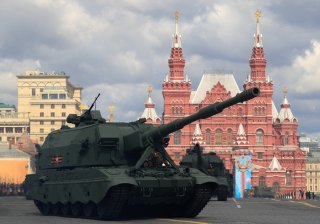Blowback: Will Russia’s War in Ukraine Undermine Putin’s Rule?
Putin will be reluctant to alter course due in part to the high reputational costs at home and abroad of backing down.
Conclusion
In contrast to the annexation of Crimea in 2014, which was wildly popular in Russia in part because of its low cost in blood and treasure, Russia’s invasion of Ukraine will likely exact a significant toll in casualties. Many Russians are also concerned with the safety of the Ukrainian population. Ever stronger Western sanctions will likely create widespread distress by damaging much of the Russian economy. Anxiety over these hazards as well as an uncertain future for Russia dampens or blocks Russian support for the invasion among elites and mass publics despite heightened efforts by Kremlin-controlled mass media to shape public opinion. The Kremlin’s long-standing reliance on narratives of external and domestic threats to mobilize political support or at least ensure public obedience is now a much-diminished strategy.
Yet Putin will be reluctant to alter course due in part to the high reputational costs at home and abroad of backing down. Public dissent based on political and economic grievances that are created or exposed by aggression against Ukraine will increase but still encounter the repressive capacity of the state rooted in the unequal political power of different elites. If the siloviki as a group (and aligned elites) do not waiver in their support for Putin, the regime should survive through greater political regimentation. Much will depend on how the siloviki collectively view the different costs and benefits of the war. Their incentives for defection, for now, seem outweighed by the fact that Putin, even in his reckless invasion of Ukraine, continues to address their ideological, cultural, political, and institutional preferences. But this perception of the advantages of loyalty may change if Ukraine becomes a Russian quagmire and the West remains united in its opposition to Putin. Elements of the siloviki may come to view this external environment as well as the growing challenges of domestic repression as unacceptable, allowing a surge of protest from below.
Thomas Sherlock is a professor of political science at the United States Military Academy at West Point. You can contact him at [email protected].
This article does not represent the views of the U.S. Government, the U.S. Army, or the U.S. Military Academy.
Image: Reuters.

